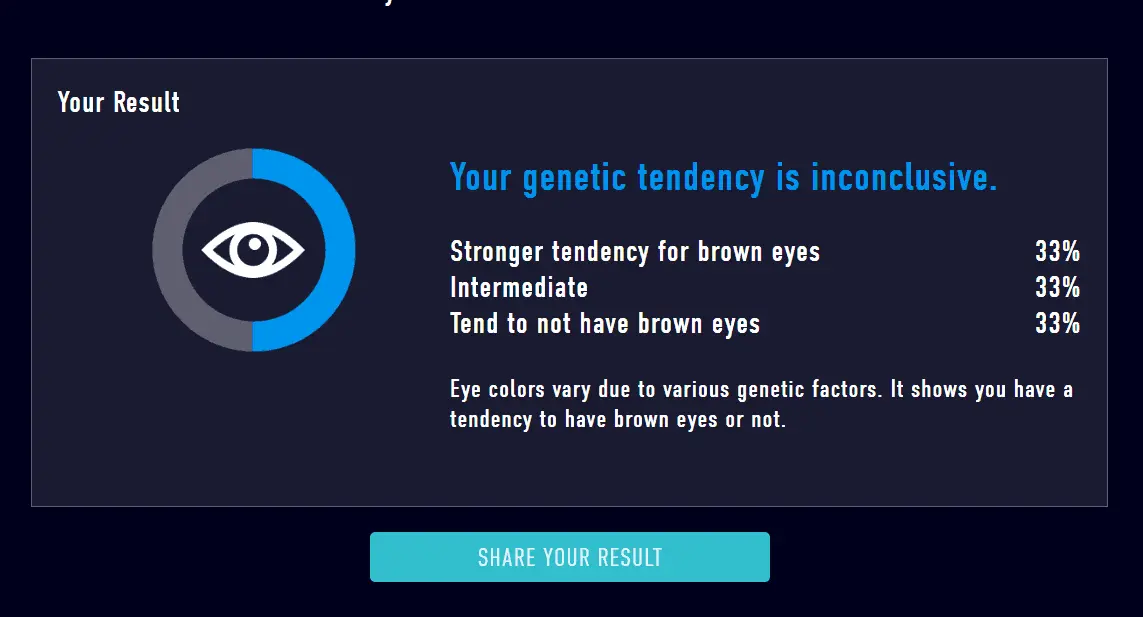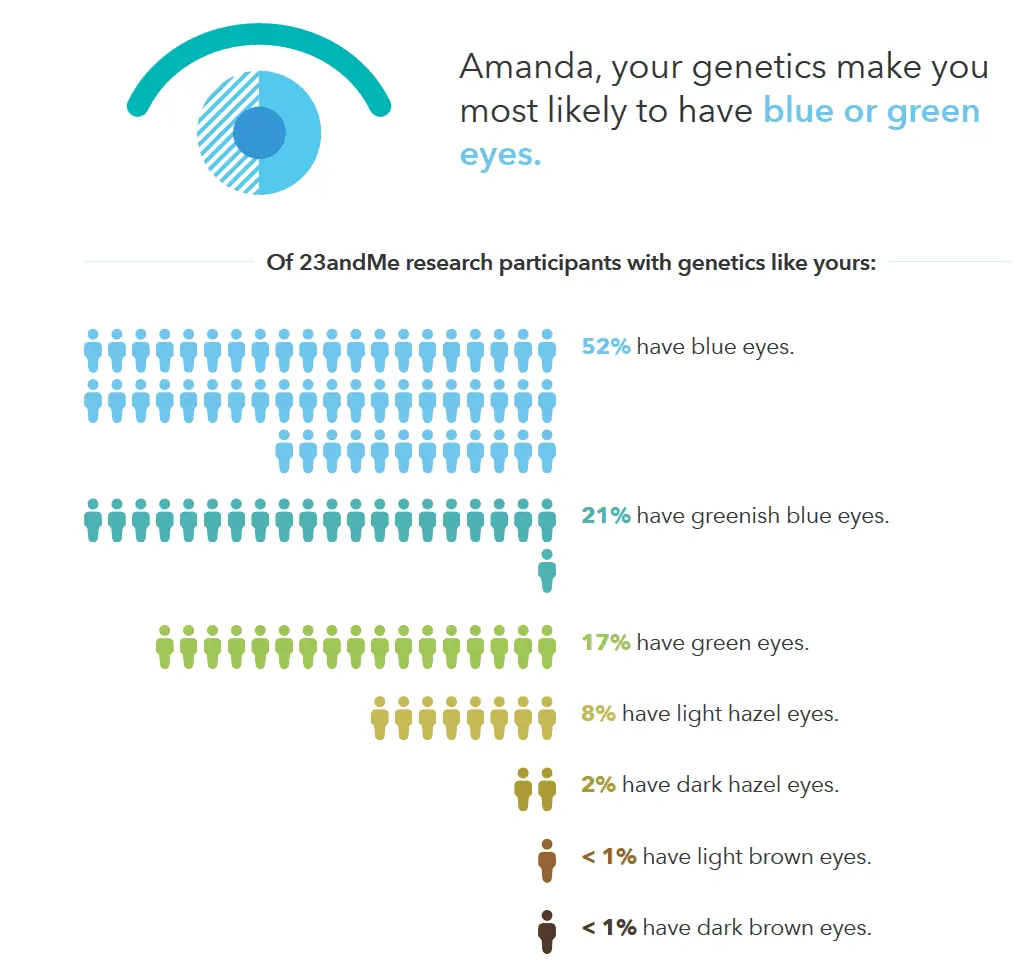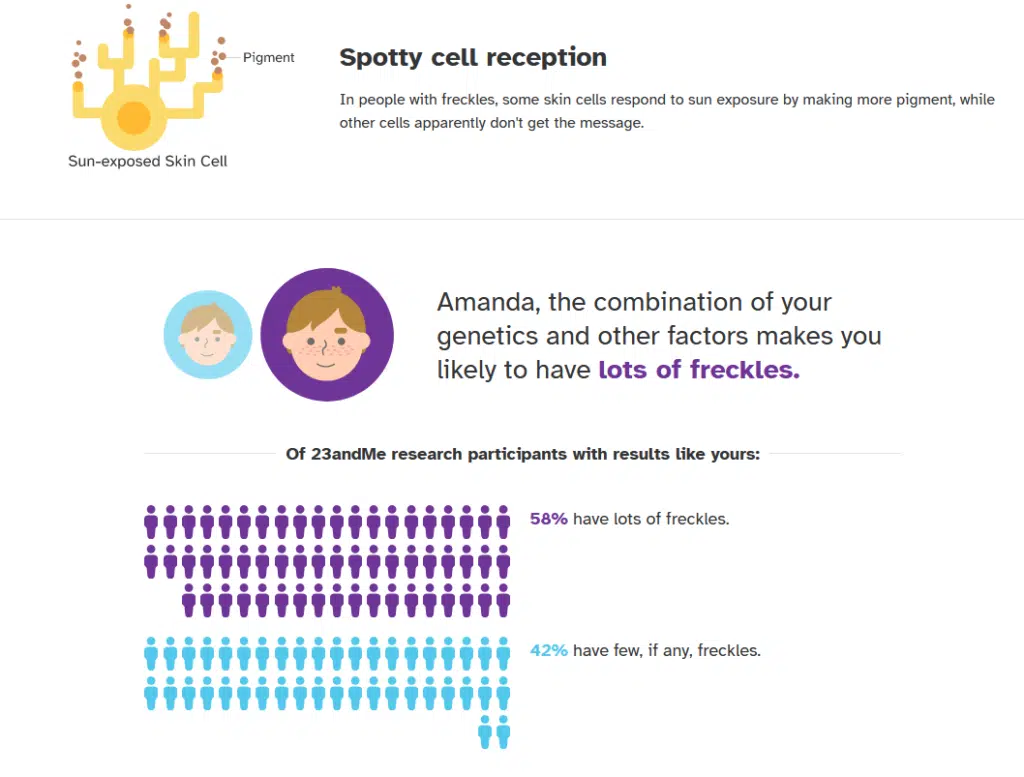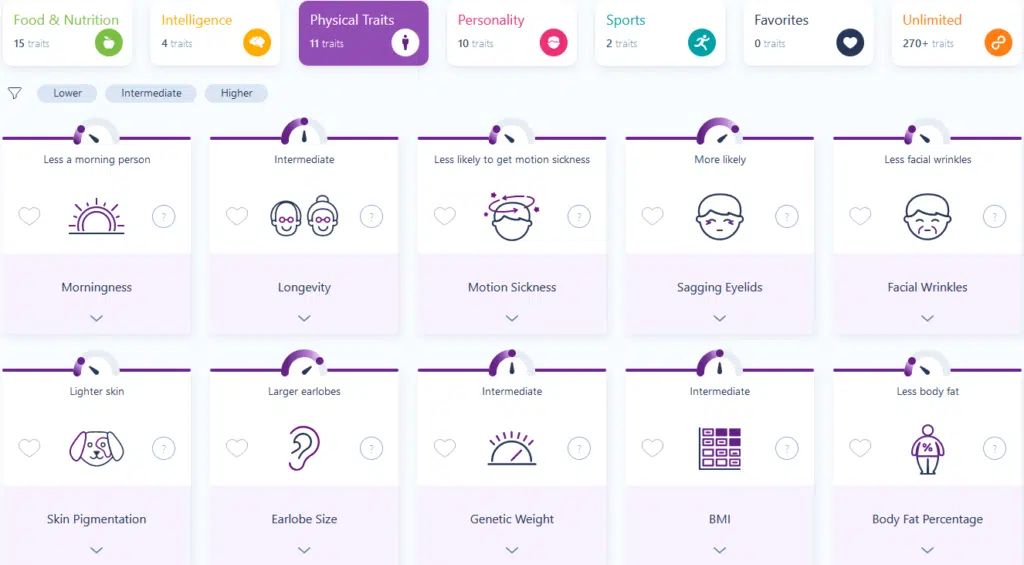I’m always on the lookout for more things to do with my raw DNA data from AncestryDNA or 23andme—especially if they’re free or low-cost. When I find said things, I also like to share them here, and well, I found a thing. GenomeLink is a DNA service that analyses your DNA to offer insight into lifestyle, nutrition, cognition, and personality genetic traits you may possess. This is done by checking your raw DNA against a list of single-nucleotide polymorphisms (SNP) that have been linked by medical research to certain traits.
If you’ve tried Promethease (which costs $12), the service is similar in mechanism, but offers far less data in a more digestible format and focuses less on medical traits. You can use raw data from AncestryDNA, 23andme, or MyHeritage to get your GenomeLink results.
2023 update: This GenomeLink review was originally written in 2018, and their site has changed quite a bit since then, so I’ve also updated this page.
GenomeLink review:
With a free account, you receive 50 unique trait reports–not 250+ as their sign-up page sort of sneakily misleads in multiple places, or even the 100 free trait reports it says you’ll receive in plain text. Even four years later, I still find the site itself a poorly done. Some links don’t work. Some links don’t do what you’d expect. Information is inconsistent (such as something as simple as how many free traits you get, which was also inaccurate in 2018, crazy!).
The company did reach out to me after reading my AncestryDNA vs 23andme comparison years ago and offered me a free upgrade (a $39 value then, now $96+ as the “upgrade” to unlimited traits is $96 a year) to add to this review. I made a new free account to compare their progress in 2023. This review wasn’t paid (and still isn’t), and obviously I didn’t allow the past freebie to sway my review to insta-five-stars. My reviews are always unbiased. The original upgrade gave me 30 more unique traits, but I now have 305 thanks to weekly inbox traits I mostly never read.
I’ll note, I actually wouldn’t have needed the upgrade anyway. Most of the traits offered (now and in the past) I have already seen either in 23andme’s health reports or Promethease’s data, and I’m sad to say still I question the accuracy of the reports provided. I am aware that having a genetic tendency for something doesn’t guarantee that it will present itself. I’ve had plenty of other genetic insights tell me things like I should be lactose intolerant, and I should have the long luxurious locks I’ve always wished I did have. The reason I question the accuracy of this service is that I have comparison data.
I doubted them in the past because the first report from my original GenomeLink account (eye color) was pretty unimpressive. I’m leaving this data here, but was a little surprised to find they’ve now removed the eye color report entirely (did my review have such power?), and it is not in my upgraded account or the new free one I made for this updated review.
Ignoring the horrible grammar in this screenshot (or not?), Inconclusive? They couldn’t tell me what color eyes I probably should have, but they could tell me there’s an equal chance of brown, not brown, or intermediate (huh?). Now, let’s compare that to 23andme and Promethease….
23andme says my chances of blue, green, or a mix are 90 percent (my eyes are in fact blue-green) and that brown has the lowest chance. There’s no thirds about it.
Promethease gave me too much data to screenshot it all for you, so you get just a small section, but to summarize, there were 14 markers associated with a higher chance of blue, green, or grey eyes, several giving a 99 percent chance, and not a single flag for brown. Basic genetics makes that a logical finding being my parents, my grandparents, and their parents, all had blue or green eyes.
For the update, I had to find a report that was offered by 23andme as well that also had results on Promethease, which wasn’t hard. You can tell GenomeLink is taking inspiration from 23andme in a big way. I went with freckles, as that was an inaccuracy I called out back in 2018 as well. Here’s the report over at GenomeLink. They are saying I probably don’t have freckles, but I have a better chance of having freckles than a middle risk of freckles? If that makes sense (it doesn’t really).
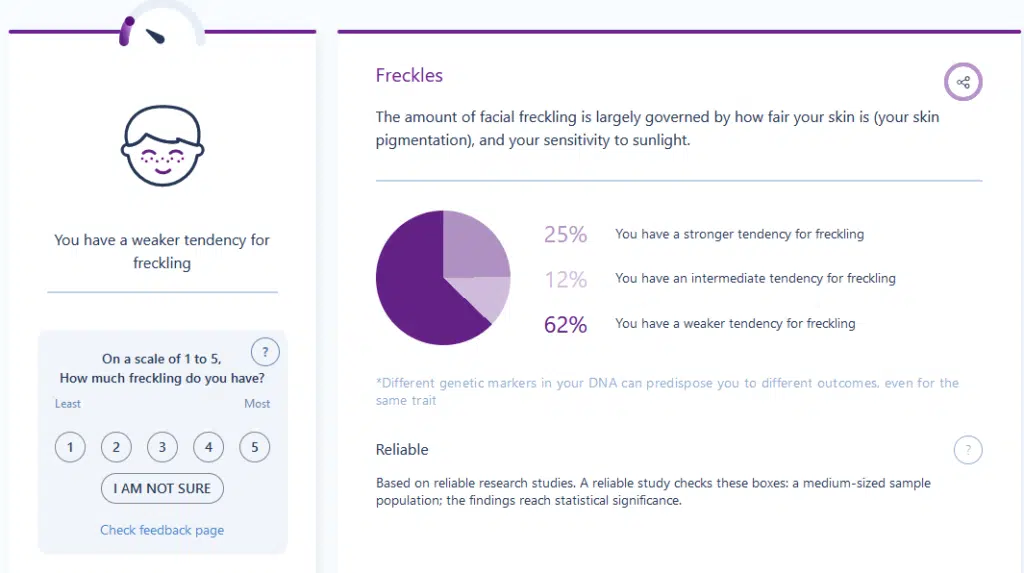
Many of the other traits listed in my GenomeLink report also still don’t match 23andme and Promethease’s reports (which do agree), and often say the complete opposite like in the freckle example. However, they have improved on some reports. Back in 2018, they said I had a 100% chance of having strong skin pigmentation, while the other two sites said “very fair” (I glow in sunlight, so that’s an accurate description). My GenomeLink report now states a 33% chance of strong skin pigmentation and a 67% chance of less skin pigmentation. It’s an improvement.
Previously, I suggested it may have been the limited scale as far as the number of markers GenomeLink uses in its DNA analyses that hurt the accuracy of the reports offered, and they seem to have remedied that to some degree, but still are not looking at as much health research data as their competitors.
I will give it to them that the site has undergone quite the facelift and comes off more professional than it did, but still misses the mark for me. For instance, is “morningness” a word? And how is being a morning person or “intermediately” lived a physical trait? If you click the “unlimited” tab, by the way, it prompts you to upgrade. This screenshot is from the new free account I made.
My overall impression of GenomeLink is that it may never make that jump out of the beta-feel stage, and the site really seems to aggressively push the up-sale, along with new ancestry reports for really specific and in some cases bizarre stuff. It’s hard to categorize some of these.
You can order things like the “Native American,” Viking” or “Ancient Ancestry” reports (I’m not sure how this differs from the Ancient Bloodlines report, but you can order that too) or get reports that offer nutrition and diet advice–all at $20-$40 a pop. It very much comes off like a money grab for whatever fad they think someone might pay to have DNA analysis and scientific research loosely applied to.
I had hopes for this site on the initial review, thinking that with some work on accuracy and site design, it could be neat. If you tested at AncestryDNA it would give you access to the genetic tidbits you missed out on by not testing at 23andme without the data-overload of Promethease. The new traits in your inbox had a very calendar-of-the-day trivia-cool vibe. I would have definitely dug that it if I could trust the info I was being given.
As-is though? I still wouldn’t recommend more than the free version for kicks, but give those upgrades and extra reports a hard look before you hand over your hard-earned cash.

